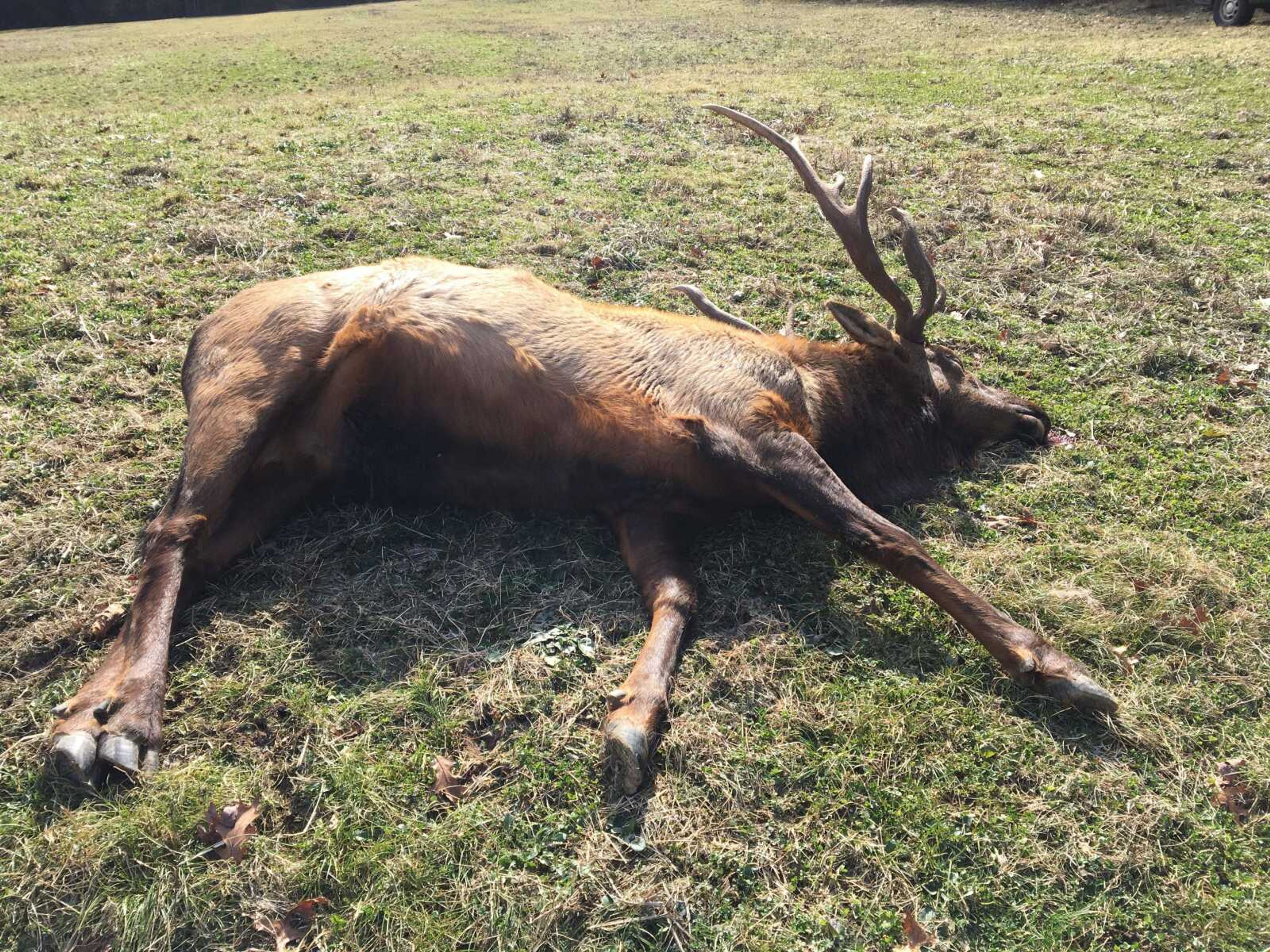Missouri ponders more punitive poaching penalties; Cape County lawmaker objects
Lawmakers are considering a bill that would stiffen penalties for poaching, a measure strongly supported by the Missouri Department of Conservation. State Rep. Barry Hovis' vote stood out as one of the few opponents of the measure. He was one of 10 Missouri House members who voted against a bill that allows judges to order poachers to pay restitution fees ranging from $500 to $15,000...
Lawmakers are considering a bill that would stiffen penalties for poaching, a measure strongly supported by the Missouri Department of Conservation.
State Rep. Barry Hovis' vote stood out as one of the few opponents of the measure. He was one of 10 Missouri House members who voted against a bill that allows judges to order poachers to pay restitution fees ranging from $500 to $15,000.
Hovis, R-Gordonville, said he voted against the measure because it would impose thousands of dollars in restitution fees for those poaching whitetail deer at a time when he said Missouri is overpopulated with deer.
Hovis said he would have supported the measure if it had been limited to protecting the state's "most troubled species" such as elk and black bear.
But the legislation was broader. In addition to elk and black bear, it included wild turkey, paddlefish and white-tailed deer.
The House earlier this month approved the bill on a vote of 149 to 10.
Hovis was the only area House member to vote against the measure. Reps. Kathy Swan, Rick Francis and Holly Rehder voted for it.
The Senate is considering an identical bill.
A similar measure passed the House last year, but died in a Senate committee.
The illegal killing of three Missouri elk in recent months focused a spotlight on poaching.
An elk calf was killed in December. In February, two adult elk were shot and left to rot in Shannon County, according to the Missouri Department of Conservation (MDC).
A conservation official, Randy Doman, said it appears poachers wanted to shoot elk for fun or spite, The Associated Press reported last month.
Missouri began importing elk from Kentucky in 2011 with a goal of re-establishing the population and having an elk hunting season. There are about 170 elk roaming in Reynolds, Shannon and Carter counties in Southern Missouri, according to the Missouri Department of Conservation. The agency wants the elk population to grow to a minimum of 200 before allowing elk hunting.
Missouri is home to a growing number of black bears, but, like elk, it is still illegal to hunt them.
MDC's Conservation Commission wants to see the population of black bears grow to 500 before allowing the animals to be hunted. Missouri had an estimated black bear population of 350 bears in 2018.
Rep. Jered Taylor, R-Nixa, who sponsored the poaching bill, and other supporters of the measure said Missouri has some of the lowest fines for poaching in the United States.
Aaron Jeffries, MDC deputy director, told the Southeast Missourian editorial board this week poaching is a misdemeanor. Many times the fines are less than $200, he said.
State Sen. Mike Bernskoetter, R-Jefferson City, said the state's maximum fine for poaching can cost less than a hunting license, so many poachers take their chances, The Associated Press reported.
The legislation would allow judges to impose stiffer penalties on hunters found guilty of "chasing, pursuing, killing, processing or disposing of wild turkey, paddlefish, white-tailed deer, black bear or elk in violation of methods, seasons and limits."
Poachers would have to pay restitution of $500 to $1,000 for illegally taking wild turkey and paddlefish; $2,000 to $5,000 for white-tailed deer; and $10,000 to $15,000 for black bear and elk.
But Hovis said he doesn't believe poachers of white-tailed deer should have to pay such hefty fines.
Hovis said one Bollinger County farmer told him that he has seen 60 deer on 40 acres of his land. According to Hovis, the farmer had difficulty obtaining enough hunting permits to kill the deer. The farmer talked of killing deer, which were damaging his farm land, without the necessary permits, Hovis said.
Over-population of deer is also a concern in urban areas of the state, according to Hovis.
The city of Cape Girardeau, Hovis said, has experienced a large deer population. "We have so many deer accidents," he said.
mbliss@semissourian.com
(573) 388-3641
Connect with the Southeast Missourian Newsroom:
For corrections to this story or other insights for the editor, click here. To submit a letter to the editor, click here. To learn about the Southeast Missourian’s AI Policy, click here.










